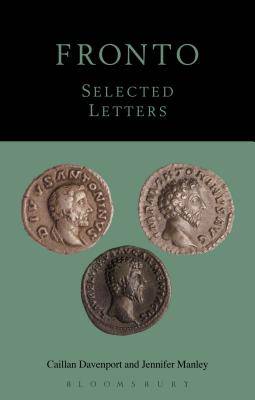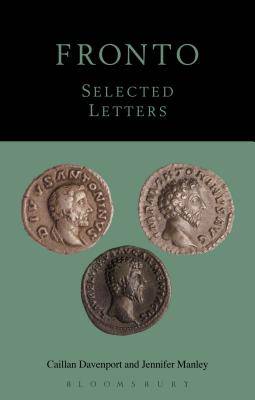
Bedankt voor het vertrouwen het afgelopen jaar! Om jou te bedanken bieden we GRATIS verzending (in België) aan op alles gedurende de hele maand januari.
- Afhalen na 1 uur in een winkel met voorraad
- In januari gratis thuislevering in België
- Ruim aanbod met 7 miljoen producten
Bedankt voor het vertrouwen het afgelopen jaar! Om jou te bedanken bieden we GRATIS verzending (in België) aan op alles gedurende de hele maand januari.
- Afhalen na 1 uur in een winkel met voorraad
- In januari gratis thuislevering in België
- Ruim aanbod met 7 miljoen producten
Zoeken
€ 34,95
+ 69 punten
Omschrijving
M. Cornelius Fronto was a Roman senator from North Africa, and the foremost Latin orator and legal advocate of the mid-second century A.D. Fronto's talent and fame led to his appointment as tutor to Marcus Aurelius and Lucius Verus, the adoptive sons of the emperor Antoninus Pius, in the late 130s A.D.
Fronto's extant correspondence, discovered in the early nineteenth century, consists of around two hundred letters extending over a period of more than twenty-five years, from the late 130s to the mid-160s A.D. In this period, Fronto educated Marcus and Verus in the art of Latin rhetoric, and watched with pride as his illustrious pupils matured and ascended the throne. The correspondence includes letters Fronto exchanged with Marcus and Verus, their father Antoninus Pius, leading senators, and other influential figures at court.
This collection features new English translations and commentaries on fifty-four letters from Fronto's correspondence. The letters have been selected for the insights they provide into the political and social history of the Roman empire in the second century A.D., with particular emphasis on court politics and intrigue, the Parthian War, and family relationships among members of the Roman elite. The letters have been arranged in approximate chronological order, enabling the reader to take a journey through Fronto's life over a quarter of a century.
The introduction discusses Fronto's life and career, Roman letter writing, the history and character of Fronto's correspondence, and the relationship between Fronto and Marcus Aurelius. It also includes brief biographies of key individuals and family trees. The translation of fifty-four letters with contextual editorial introductions and notes is divided into the following sections: Educating Caesar; Fronto and Herodes; Fronto the Consul; Family Affairs; Politics and Patronage; The Reign of Marcus and Verus; Fronto, Verus and the Parthian War; and Fronto's Grief.
Fronto's extant correspondence, discovered in the early nineteenth century, consists of around two hundred letters extending over a period of more than twenty-five years, from the late 130s to the mid-160s A.D. In this period, Fronto educated Marcus and Verus in the art of Latin rhetoric, and watched with pride as his illustrious pupils matured and ascended the throne. The correspondence includes letters Fronto exchanged with Marcus and Verus, their father Antoninus Pius, leading senators, and other influential figures at court.
This collection features new English translations and commentaries on fifty-four letters from Fronto's correspondence. The letters have been selected for the insights they provide into the political and social history of the Roman empire in the second century A.D., with particular emphasis on court politics and intrigue, the Parthian War, and family relationships among members of the Roman elite. The letters have been arranged in approximate chronological order, enabling the reader to take a journey through Fronto's life over a quarter of a century.
The introduction discusses Fronto's life and career, Roman letter writing, the history and character of Fronto's correspondence, and the relationship between Fronto and Marcus Aurelius. It also includes brief biographies of key individuals and family trees. The translation of fifty-four letters with contextual editorial introductions and notes is divided into the following sections: Educating Caesar; Fronto and Herodes; Fronto the Consul; Family Affairs; Politics and Patronage; The Reign of Marcus and Verus; Fronto, Verus and the Parthian War; and Fronto's Grief.
Specificaties
Betrokkenen
- Auteur(s):
- Uitgeverij:
Inhoud
- Aantal bladzijden:
- 240
- Taal:
- Engels
- Reeks:
Eigenschappen
- Productcode (EAN):
- 9781780934426
- Verschijningsdatum:
- 2/01/2014
- Uitvoering:
- Paperback
- Formaat:
- Trade paperback (VS)
- Afmetingen:
- 155 mm x 231 mm
- Gewicht:
- 385 g

Alleen bij Standaard Boekhandel
+ 69 punten op je klantenkaart van Standaard Boekhandel
Beoordelingen
We publiceren alleen reviews die voldoen aan de voorwaarden voor reviews. Bekijk onze voorwaarden voor reviews.









